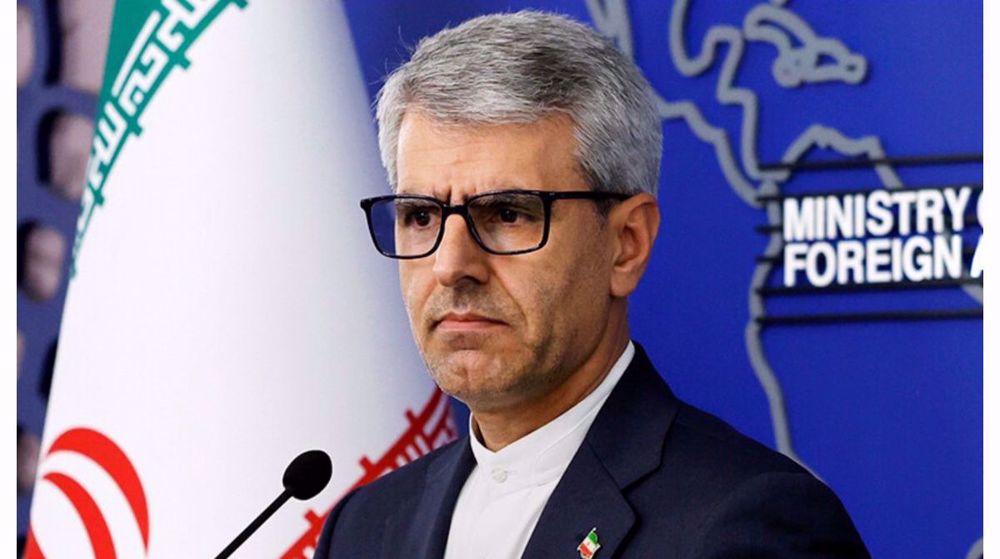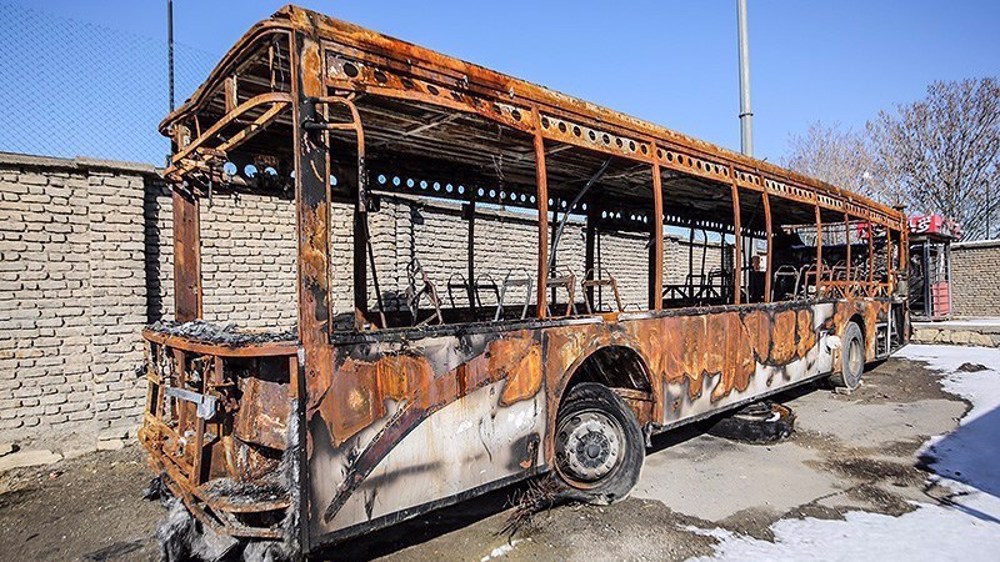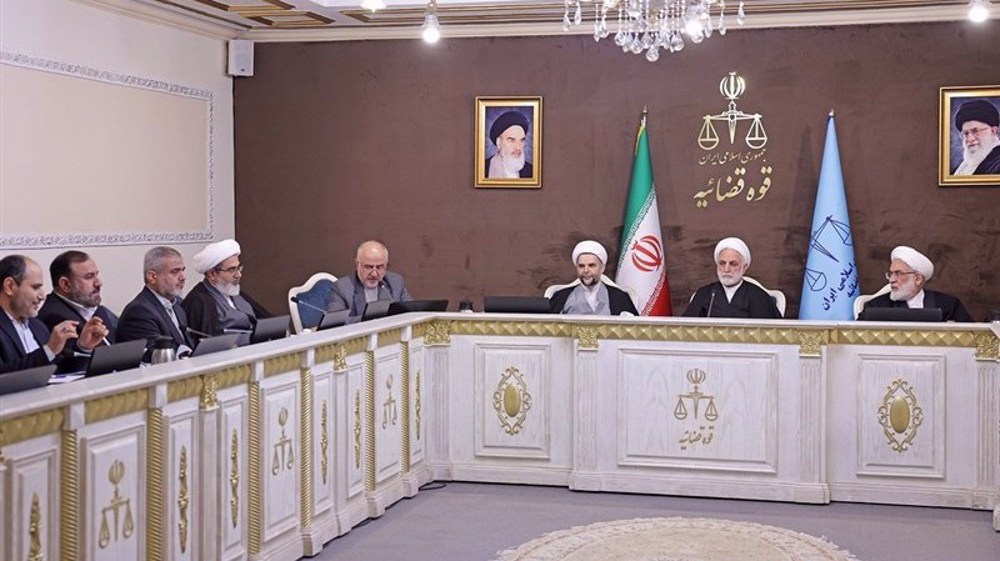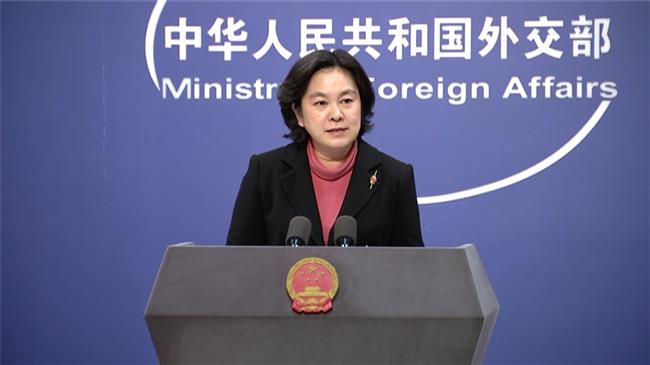Tehran says no changes seen regarding JCPOA, warns to implement new nuclear law ‘word by word’
Tehran says nothing new has happened with regard to the 2015 nuclear agreement it reached with six world powers, which was later ditched by former US President Donald Trump.
“We haven’t seen any new development regarding the JCPOA,” Foreign Ministry spokesman Saeed Khatibzadeh said at a press conference on Monday, using the official name of the nuclear deal.
He said Iran has made it clear that the US should first lift the sanctions, which were imposed under Trump, and honor the JCPOA, before Iran returns to full compliance with the accord.
The Joint Comprehensive Plan of Action came under vicious attacks during the four years Trump was in office, but it survived nevertheless. After pulling out in May 2018, Trump intensified his efforts to kill the deal, which was signed under his predecessor Barack Obama.
Iran, for its part, waited patiently for the other signatories – namely the UK, France, Germany, China and Russia – to protect its interests as promised under the deal. However, as they failed to protect it against Washington’s “maximum pressure” policy and compensate it, Tehran announced a gradual reduction of its commitments under the deal exactly one year after the US withdrawal.
Meanwhile, with a new Democratic administration in Washington, the prospects of renewed endeavors to salvage diplomacy have improved.
In his Monday presser, Khatibzadeh underlined that as long as sanctions are in place, nothing would happen on Iran’s side.
“Naturally, as stated before, Iran’s reduction [of its commitments] is reversible if the other side honors its obligations and the conditions are restored to the pre-JCPOA withdrawal era,” he said. “We’ve heard a lot of talk, but now it is time to act.”
The spokesman emphasized that a return to the JCPOA should be done “responsibly.”
“That a government whimsically decides to exit an agreement endorsed by a UN Security Council resolution and then decides to re-enter it is not feasible,” he said, noting that Iran’s stance, unlike that of the United States, is based on legal grounds.
He further said the US cannot do whatever it wants and then return to the previous conditions, suggesting that the US should make up for the damage inflicted upon Iran by its illegal withdrawal from the JCPOA and its subsequent sanctions.
Asked to comment on the Iranian Parliament’s recent push for accelerating the development of the country’s nuclear program, Khatibzadeh said if the European parties to the deal do not honor their commitments under UN Security Council Resolution 2231, Iran should naturally stop the International Atomic Energy Agency’s safeguards inspections and implementation of the Additional Protocol.
He warned the European parties to the deal that this is their “last chance to return to honoring their commitments and salvage the JCPOA.”
“The Americans should also know that we will implement the Parliament’s law word by word,” the spokesman added.
Early last month, Iranian lawmakers overwhelmingly voted in favor of the Strategic Action Plan to Counter Sanctions, which tasked the Iranian administration with suspending more commitments under the JCPOA.
The law, among other things, required the Atomic Energy Organization of Iran (AEOI) to produce at least 120 kg of 20-percent enriched uranium annually and start the installation, gas injection, enrichment and storage of nuclear materials up to an appropriate enrichment degree within a period of three months using at least 1,000 IR-2m centrifuges.
A month later, Tehran announced the beginning of the process to enrich uranium to 20 percent purity at its Fordow nuclear facility in a tit-for-tat move against the US withdrawal and the European countries’ failure to protect Iran’s interests.
“Whenever the other side rectifies its steps, we will reverse our measures as well, including the 20 percent enrichment,” Khatibzadeh said.
He also stated that although a few days have passed since Biden’s inauguration, “we haven’t seen any measure from the European side.”
In reference to the Instrument in Support of Trade Exchanges (INSTEX), a financial mechanism proposed by Europeans to circumvent US sanctions, Khatibzadeh suggested that the mechanism has failed to meet its purpose.
“INSTEX was created to neutralize unilateral, extraterritorial and illegal US sanctions, not to conduct limited exchanges in some areas under the sanctions,” he said.
Reacting to recent remarks by German Foreign Minister Heiko Maas, who blamed Iran for INSTEX’s failure to be effective, Khatibzadeh said the remarks were intended to divert attention from their failure to fulfill their obligations.
“Some of the parties in the JCPOA think that history can be erased with their remarks or that Iran will forget their commitments,” he said.
Israel clearing northern Gaza land for settlements: Report
Gaza deadliest place for journalists and aid workers: UNRWA chief
Israel claims body of final captive recovered from Gaza
VIDEO | Armed gangs in Gaza at center of brewing power struggle over civil administration
3,500 Iranian cultural, media figures support Leader amid Trump’s threats
Hezbollah chief: New US-Israeli war on Iran will set entire region ablaze
UAE says will not allow its airspace, territory to be used for attacks on Iran
VIDEO | Press TV's news headlines
















 This makes it easy to access the Press TV website
This makes it easy to access the Press TV website